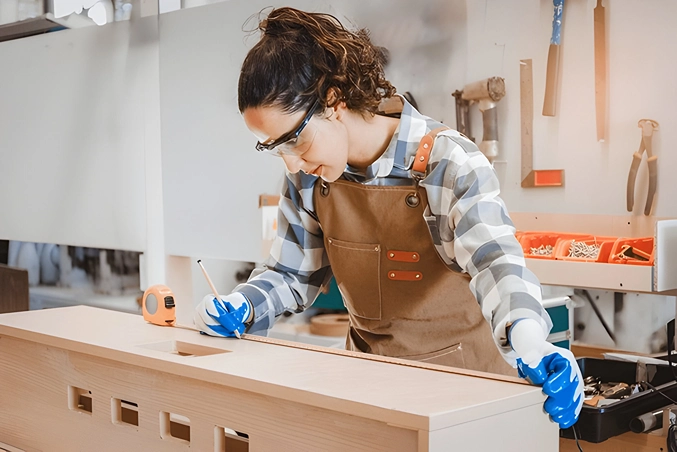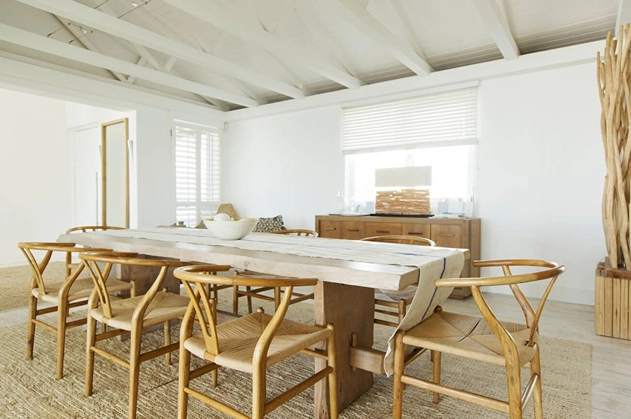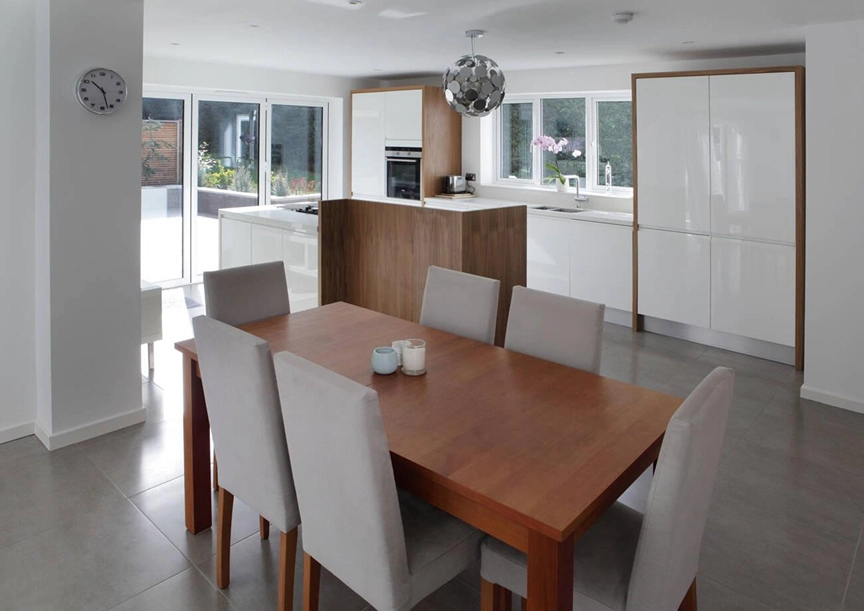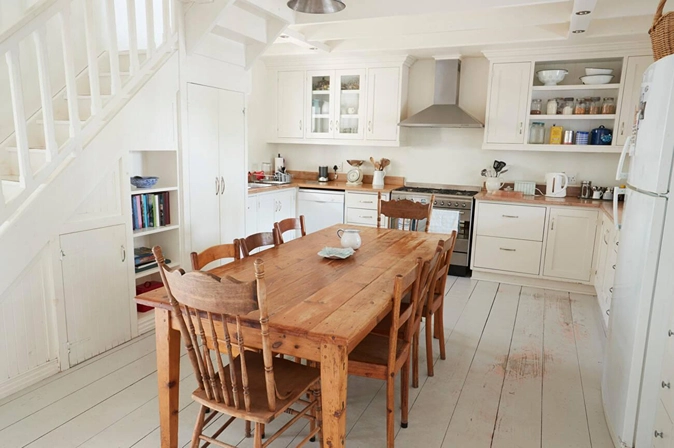Selecting the right dining table for your home is an exhilarating and overwhelming endeavor. It is a big purchase that affects your dining experience and the whole look of your home. The correct dining table can make all the difference whether you are hosting a dinner party or quietly enjoying a family meal. This guide will assist you in selecting the ideal dining table to meet your needs while also suiting your personal style.
Evaluate Your Dining Space
Measure Your Room
Before looking at styles and materials, it’s important to measure your dining space. Knowing how much space you have prevents you from buying too large or too small a table. Make sure to leave enough space around the table for chairs and people to move around easily. A general guideline is to leave approximately 36 inches between the edge of the table and the wall or other furniture.

Think About Shape
The shape of your room should match with that of your dining table. Here’s a way out:
Rectangular: Best for long, narrow spaces and accommodates more people.
Square: Suitable for square rooms and intimate gatherings.
Round: The best choice for small rooms since they encourage conversations.
Oval: It is like a rectangle but has more seating without taking up as much room as round tables.
Determine Your Style
Match Your Decor

Your dining table should match the overall style of your house. If you have a modern house, go with sleek lines and minimalist designs. For an old-fashioned look, ornate details and rich wood tones would be perfect. Additionally, rustic or farmhouse-type looks often include reclaimed wood and a less formal appearance.
Material Matters
The material used on the surface of the table influences its appearance as well as its durability:
Wooden: Traditional wooden tables are timeless pieces available in different finishes and types, such as oak, walnut, or mahogany, which are durable but prone to scratching and staining.
Glass: Glass tables make a space appear more prominent and more open. They are easy to clean but sometimes show fingerprints and smudges.
Metal: Often used in industrial or modern designs, metal tables can be stylish and robust but also get cold.
Marble: Luxurious and elegant, marble is durable but heavy and needs care to avoid staining.
Consider Functionality

Seating Capacity
Consider the number of people you usually host at home. For regular entertainers, go for a larger table or one that can extend. Smaller families or occasional guests would require smaller tables. The general rule is to have enough table length per person for 24 inches.
Table Height
Standard dining tables are around 30 inches tall, though there are also counter height (36 inches) and bar height (42 inches) options. Consider the height of your chairs and the atmosphere you want in your dining experience.
Extendable Tables
You may often have a lot of guests yet a small room size; that’s where the extendable dining table fits in. These tables come with leaves that can be taken out or added on so that they fit perfectly in any given case.
Durability and Maintenance Evaluation
Everyday Usage
Assess how often and in what way you will use your dining table. For daily use with young children, you might prioritize durability or ease of cleaning. Solid wood or laminates are more wear-resistant than fragile surfaces such as glass or marble.
Maintenance Needs
Some materials require more maintenance than others. For example, wood may need to be polished after some time, while glass must be cleaned regularly to avoid streaks. Consider the willingness to maintain this.
Be Wise with Your Budget

Formulate a Budget
Dining tables come in several price ranges. Having a budget in mind before commencing shopping can help you narrow down your options and prevent impulse buying. Remember that while it might seem sensible to choose the least expensive alternative, you could save money by investing in quality rather than having replacements later on.
Look Around
Don’t buy the first table you see. Compare prices, materials, and styles for online purchases across stores and websites. Pay attention to discounts and sale offers, which can save you a lot of money when buying.
Try Before You Buy
Comfortability and Stability
Try visiting some shops where one can see and feel the tables themselves. Sit at the table to check its comfort and stability. Watch out for any wobbling or uneven surfaces. Are there any edge details? How about legroom?
Online Feedbacks
If you are purchasing online, go through customer reviews relating to its quality, including durability aspects. Also, search for comments on issues like how easily or difficult it is to fix, its robustness, and any other matters arising from using it.
More Tips

Matching Chairs
When selecting a dining table, ask yourself whether you want matching chairs. Carefully consider whether they complement each other based on height and overall design.
Futuristic Thinking
Consider how your dining needs may change in the future. Select a dining table that can accommodate such alterations, such as if you plan to move or have more kids soon.
Personalize It
Table runners, placemats, and centerpieces are decorating items you can add to your dining area. These improve the look of the table and express your taste.
Conclusion
Choosing the perfect dining table for your home balances style, functionality, and space considerations. By assessing your eating area, selecting a preferred style, and ensuring that it serves its intended purpose while lasting long enough on the one hand and longer on the other, you can find a dining table that simultaneously satisfies these two objectives without being expensive. Remember to save money while considering whether this type of furniture matches what else is inside your house. Also, don’t forget to test it out (when you shop online). With these tips, you’ll be well on your way to selecting a dining table that will be the centerpiece of memorable meals for years.

